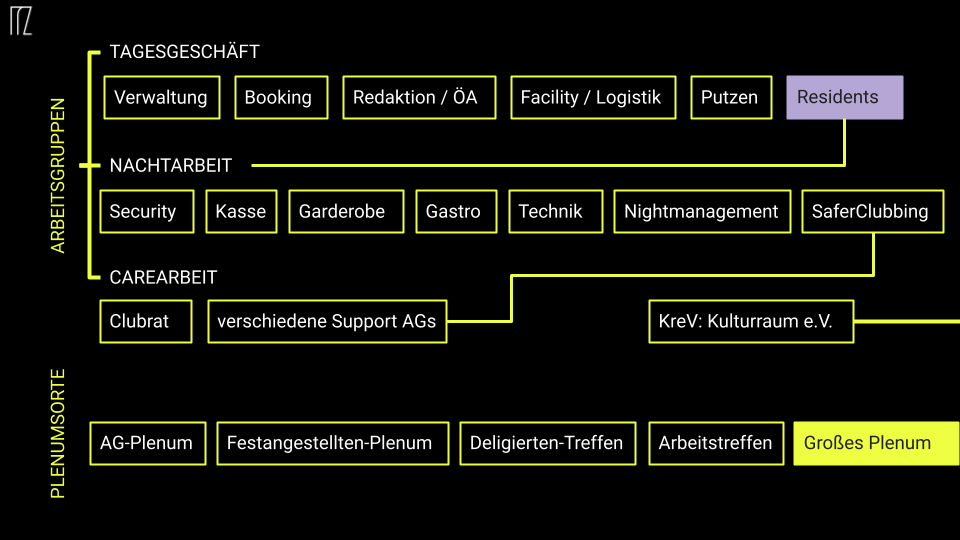IfZ Structure [en]
How does the Institut fuer Zukunft work
The IfZ was founded in 2014 and is a DIY club for progressive, electronic music. The club currently functions in the legal form of a civil law partnership (GbR), which means that two people are liable for the club with their private assets. The club is organised in working groups (AGs), which all act autonomously as far as possible and decide on their staff, shift distribution and other relevant processes concerning the AG.
In addition to the working groups for day-to-day business (office/administration, booking, editorial/public relations, facility, logistics, cleaning), there are also working groups for night work (security, box office, cloakroom, catering, technology, night management, safer clubbing). Club Council and Support AG form our carestructures away from the night. The Club Council acts as a mediating body for problems and complaints between different conflict parties within the crew. It is obliged to react neutrally, sensitively and confidentially to enquiries. The Support AG is the contact point for people who have experienced discrimination, violence or other negative experiences in or around the club and need follow-up, exchange or support.
For collective exchange, there are different plenary places to discuss topics, clarify questions and make decisions.
Why are we doing all this?
IfZ was founded under the motto “Another sound is possible”. Besides the special focus on the much-named “IfZ Sound” in the past, the concept was inspired by the idea of Safer Clubbing, which established previously non-existent awareness standards within club culture and from which many other spaces could learn. There is no current self-image, but work is already underway.
What challenges does the club face in general?
The biggest challenges for the club structure, apart from the economic constraints that lie above everything, are the openly and covertly existing hierarchies, complex, lengthy and often dysfunctional decision-making and work-up processes, which in turn can lead to further injuries for those affected. In addition, the perspectives and needs of BIPoCs are not yet adequately represented within the crew. With currently about 150 staff members, among whom there is a high turnover, it is also very difficult to agree on minimum consensus on political issues. There are also frequent problems, misunderstandings and different expectations when it comes to taking over and handing over responsibility.
